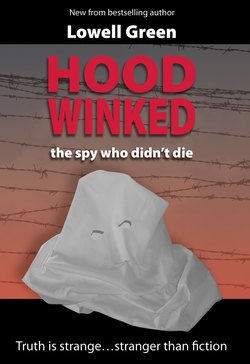Читать книгу Hoodwinked - the spy who didn't die - Lowell Ph.D. Green - Страница 10
На сайте Литреса книга снята с продажи.
The Rahachow Slaughter
ОглавлениеTHE GERMANS CAME TO RAHACHOW the morning of August 4, 1941, rounded up almost everyone over the age of 50, more than a thousand people, including my mother, father and two uncles, took them into the nearby woods and shot them. Those of us like myself, young and strong enough to work in their slave camps and factories, were forced to lie in the streets where we could hear the machine guns, then as the last bullet found its mark we were handed shovels and ordered to bury the dead.
I found my mother’s poor shattered body amidst the carnage and as l laid her gently in the shallow grave I had dug, an SS officer shouting “schnell, schnell” jabbed me viciously in the ribs with his rifle barrel as he urged by to hurry, hurry. I could not find my father or uncles. Perhaps because of the tears that obscured my eyesight.
The Nazis quickly discovered that thanks to a schoolteacher uncle, I possessed excellent handwriting in both German and Belarusian and had considerable clerical skills, so they made me an offer I couldn’t refuse: Help unpack, sort, and carefully record all items looted from Jewish and other wealthy homes, churches, and institutions, which were brought to the Minsk Opera House prior to distribution to the Nazi hierarchy, or be shot. I chose not to be shot.
One of the few things I do remember of that terrible time is that I was ordered to write that fat turd Goebbels’ name on many of the more valuable items. Albert Speer once showed up with a military escort of about twenty SS officers and with much motorcycle revving, heel clicking and “Heil Hitlering,” Herr Speer picked out a Rubens, thus beating poor old Herr Goebbels to a choice prize!
I suppose it is amazing I can recall anything from those bleak and desperate days. I am unclear whether it is my advancing age or the deep fog into which I had descended at the time that clouds my memory of those few months in Minsk.
It was the screaming of the terrified children in the pit that awakened me from my slumbering fugue. I recall, as though it were only yesterday, looking up as the sounds of the terrified children pierced the windows of the opera house and seeing, as though for the first time, the poor emaciated slaves, clothes hanging from sharp shoulders, toiling around me. Some were surely only days from death.
As a non-Jew with light hair and blue eyes, one of the “cleaner” ones according to Himmler, I was given better rations and accommodation than those slated for eradication. No doubt the intent was that I should be kept alive in reasonable condition so that after the Nazis had won the war I would be shipped off to Germany or one of the conquered countries as a slave, although I didn’t realize it at the time.
The sound of the doomed children shook me free of the paralysis that had engulfed me and it was at that moment that I resolved to escape, despite the terrible fate that awaited those who were caught making a break for freedom. In the belief it would discourage further escape attempts, the Germans made sure we could hear the nightlong screams from those caught trying to flee. Hundreds of us were forced to view the public hangings that followed the torture. It was a very effective deterrent.
Many of those who escaped from the ghetto did so by slipping away from work parties sent outside the city to repair railway lines, roadways and bridges destroyed or damaged by the partisan attacks that had already begun to bedevil the Germans. Later, a highly organized underground was established in the ghetto that helped hundreds to escape through sewers, holes in the fence, and tunnels.* Since I worked well into the night at the Opera House labour camp just outside the ghetto, surrounded by barbed wire and armed guards, no such opportunity presented itself to me. My escape would have to be more creative.
*FACT: Many details concerning life in the Minsk Ghetto, the Opera House labour camp and the atrocities, including the above event, are all available from the US Holocaust Memorial Museum.
Minsk after WWII, with the Opera House in the background
